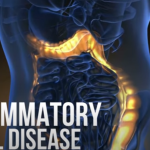RECOMMENDATIONS FOR PATIENTS WITH INFLAMMATORY BOWEL DISEASE (IBD) DURING THE COVID-19 PANDEMIC
Gastroenterological Society of Australia – 26th March 2020
The COVID-19 situation and recommendations for the healthcare sector are continuously evolving and GESA aims to provide information and guidance related to gastrointestinal disorders to clinicians and patients. Recommendations are developed according to feedback and advice from expert committees and consumer organisations. The GESA IBD Faculty in collaboration with Crohn’s & Colitis Australia (CCA), has developed this guidance for people living with inflammatory bowel disease (IBD) during the COVID-19 pandemic.
The COVID-19 pandemic has particular implications for the safety and wellbeing of people living with IBD. Many people living with IBD need long-term treatment to suppress or modify the immune system to control their disease and these therapies may make IBD patients susceptible to more severe infection. In addition, active bowel inflammation, poor nutritional status and recent surgery may impair people’s ability to fight infection. There is no evidence that people with IBD are at greater risk or getting infected with COVID-19.
Many people living with IBD are concerned that they may be at increased risk of severe COVID-19 infection if they were to be infected with coronavirus. These recommendations have been prepared to help you make decisions about your care during this challenging period.
Access to usual healthcare will be significantly different as the COVID-19 outbreak escalates and travel limitations pose significant barriers to usual pathways. The need for social isolation, and an overburdened health care system make it really important that patients with IBD take particular care in maintaining their health and following medical and government advice to keep themselves well. Suddenly stopping or changing treatment may risk a flare of IBD.
It is also important to look after your psychological wellbeing during the COVID-19 pandemic. Some tips for managing anxiety and maintaining mental health can be found here.
We make the following recommendations for people living with IBD:
- Stay on your current medications to prevent IBD flare. Do not stop or add medications, including steroids, without first contacting your specialist or the IBD team.
- Practice good hygiene – frequent handwashing with soap and water or the use of hand sanitizer are recommended, particularly when outside the home, before and after eating, after using the toilet, or after touching anything that others may have recently touched. Remember, the virus can be spread by coughing or sneezing by an infected individual, or by touching surfaces contaminated by someone else.
- Follow the recommendations from your state and the federal government (see link) with respect to social distancing. Ensure that everyone in your household or close workplace also follows recommendations related to social distancing and hygiene.
- If you can work from home, or if you can attend school/university from home, then you should do this.
- If you are not working or studying, you should stay at home as much as possible, and limit trips to buy food, visit the pharmacy or attend other essential places.
- Cessation of smoking is recommended. Smoking can worsen IBD and lead to more severe COVID infection. You may need support to stop smoking.
- If you develop symptoms concerning for COVID-19 (see link) contact your GP, local hospital or COVID testing clinic, or phone HealthDirect on 1800 022 222 for advice regarding testing. The National Coronavirus Helpline can also be contacted at 1800 020 080. You should also notify your specialist via telephone or IBD team helpline.
- If you have risks for COVID-19 infection (recently returned from overseas or in contact with a person with COVID-19 infection) or have suspected or confirmed COVID-19 infection you will be placed in self-isolation – this means you cannot leave your home for 14 days. You should follow all recommendations of the local health authorities.
- You should obtain the influenza vaccination when available.
GESA will provide updated recommendations as the situation unfolds over the coming weeks.
Disclaimer:
The Gastroenterological Society of Australia (GESA) provides advice to gastroenterologists and other clinicians caring for IBD patients during the COVID-19 pandemic. It should be noted that this advice is general in nature and thought to be correct at the time of posting. The user should have regard to any information, research or other material, which may have been published or become available subsequently. It is recommended that this advice be considered in line with directives provided by the Departments of Health and Local Health Districts.
Related Links
- https://www.healthdirect.gov.au/coronavirus
- https://www.health.gov.au/news/health-alerts/novel-coronavirus-2019-ncov-health-alert
- https://www.australia.gov.au
- https://www.gesa.org.au/public/13/files/COVID19/Impact%20of%20COVID%20for%20GI%20and%20Liver%20patients%20-%20updated%2020200319.pdf
- Crohn’s & Colitis Australia: https://www.crohnsandcolitis.com.au/news/coronavirus-covid-19-
health-alert/ - CCFA patient information: https://www.crohnscolitisfoundation.org/coronavirus/what-ibdpatients-should-know
GESA – Gastroenterological Society of Australia
 Level 1, 517 Flinders Lane
Level 1, 517 Flinders Lane
Melbourne Vic 3000 Australia
Telephone: 1300 766 176
Website: www.gesa.org.au
ABN: 44 001 171 115



